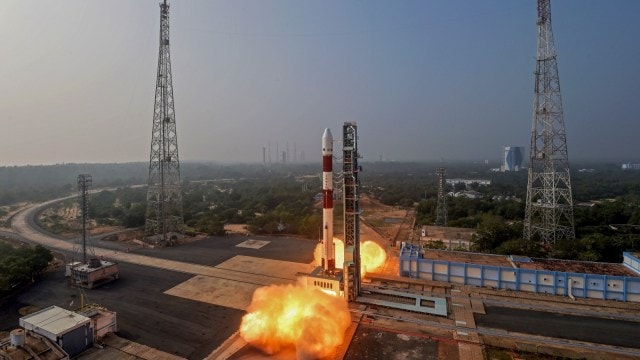The Union cabinet on Wednesday approved the amendment to the foreign direct investment policy for the space sector, allowing up to 100 per cent investment through three categories of liberalised entry routes.
The amended policy will allow up to 100 per cent investment under automatic route for the manufacturing of components, systems and subsystems for satellites, ground segments and user segments, according to a government statement.

For manufacturing and operating an entire satellite, up to 74 per cent investment will be allowed under the automatic route. Anything beyond the limit will have to go through a government approval process. Under the current policy, any foreign investment in manufacturing and operating satellites is allowed only with government approval.
Space activities largely encompass the launch vehicle and launch service, the satellite, ground stations that can detect the signals, and user products where the data from satellites is utilised. “The liberalized entry routes under the amended policy are aimed to attract potential investors to invest in Indian companies in space,” the government statement said.
When it comes to launch vehicles and its systems and subsystems or creation of a spaceport, up to 49 per cent FDI will be allowed through the automatic route under the new policy.
Pawan Chandna, co-founder and CEO of one of the upcoming launch providers, Skyroot Aerospace, said, “It gives much needed regulatory clarity for foreign investments for all domains in India’s space sector. For Skyroot being in the launch vehicle domain, 49 per cent FDI in the automatic route and 100 per cent FDI in the government route will help boost investments and open access to capital easier and at par with global standard. We expect increased interest in foreign investment across the globe as FDI limits are liberal and regulatory clarity exists. Regions from which investment can come from would be the USA, Europe, Middle East and Southeast Asia.”
The policy also clearly states that this 49 per cent cap is applicable to building of new spaceports in the country. At present, there is only one spaceport, the one operated by ISRO in Sriharikota. Industry experts in the know of the matter said, “While the government has been promoting launch activities and allied development, it is heartening to see in black and white that there can be investment and development of new spaceports.”
Story continues below this ad
Dr Subba Rao Pavuluri, CMD of Ananth Technologies, said, “The operation requirement of space technologies in India such as communications and earth observations is huge. This was the reason the sector was liberalised so that ISRO could focus on research and development while private players could offer the other services. India now also aims to capture more of the global space market. All of this requires large investments.”
He added, “Currently, India’s space industry contributes approximately $7 billion to the national GDP and employs over 100,000 skilled professionals across various disciplines. With the implementation of liberalised FDI policies, experts predict a substantial uptick in these figures, with projections suggesting a potential GDP contribution of $50 billion by 2030 and the creation of over 500,000 new jobs in the space sector.”
The limits for automatic route of investment were determined keeping a lot of sensitivities in mind, as per experts. While free investment in manufacturing of systems and subsystems will allow Indian players much more access to funds and give them the ability to compete in the global market, investments in complete satellites or launch vehicles can be risky.
Experts say some oversight is needed in investment for satellites as the ones funded by other countries may be used for purposes they were not intended for, such as spying, but they still have a failsafe of being turned off. When it comes to launch vehicles, high investment may not only lead to other companies getting access to the technology but it may also be a workshop for missile technology, experts said.
Story continues below this ad
Dr Pavluri added, “There will be lots of checks and balances in place, for example the investments would have to come through Indian companies with the governance being by Indians. This has been done in other critical sectors and can be replicated for space.”
The current changes to the FDI policy approved by the cabinet are in line with the Indian Space Policy of 2023. India aims to capture a larger chunk of the global space market. While India is a major space-faring nation, it accounts for only 2 per cent of the international commercial market. Rapid strides have been made in the three years since the space sector was opened up to private players, with over 100 startups emerging in the field.
“We are thankful to the government, and it is heartening to note the pace of its forward-looking reforms in the nascent space sector. The liberal FDI limits by automatic route will boost the confidence of all space industry members, including the biggest global players. This will give India access to the latest technological advances and much-needed funds not only from the country but from international investors too,” said Lt Gen AK Bhatt (Retd.), director-general of the Indian Space Association.
He added, “The space sector in India at present accounts for a little over 2 per cent of the global space economy and this move will help the country to gain a much larger pie in the global market.”









